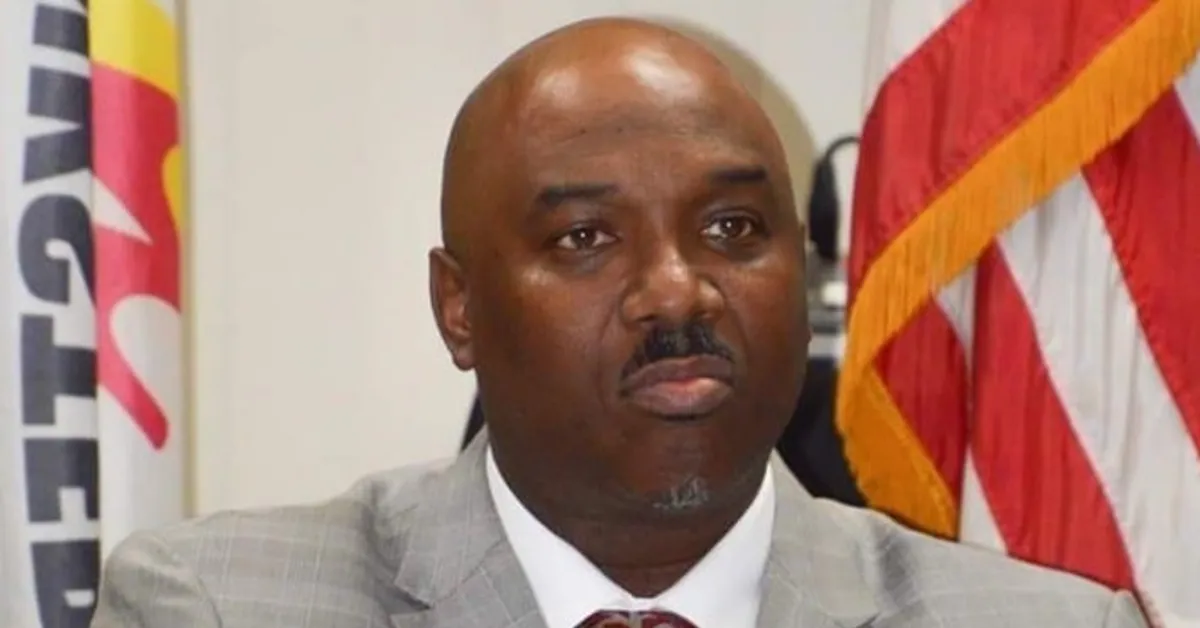Michigan's Exclusive Hream Swap Meet Returns to Grand Rapids

The beloved HREAM Swap Meet Special Selection Series is making a triumphant return to Grand Rapids this October, offering a refined, intimate experience for dedicated hash aficionados. The event, renowned for its quality and convivial atmosphere, comes cloaked in an air of mystery, with the exact location being revealed to ticket holders just prior to the gathering. Nonetheless, the secrecy only adds to the allure for those in the know.
When: Saturday, October 21, 3 - 9pm EDT
Tickets: Available on Eventbrite at $15 per ticket
Organized by the Esteemed H.R.E.A.M. Swap Meet
H.R.E.A.M. Swap Meet, the organizers behind this distinctive event, have skillfully curated a space where like-minded individuals can immerse themselves in a realm dedicated to the fine art and enjoyment of hash. For those seeking additional details and updates, the official Instagram page provides a sneak peek, although access is exclusive to approved followers.
A Refined Experience for Enthusiasts
At its core, the Hream Swap Meet is a celebration, an event by hash heads, for hash heads. Attendees will find themselves enveloped in an atmosphere that melds camaraderie with a shared appreciation for the nuances of high-quality hash. The event promises not only the opportunity to indulge in and explore diverse dabs but also the chance to engage in the swapping of stories, experiences, and perhaps even a few secret techniques.
Tactful Transactions and Swapping Galore
While the essence of the gathering revolves around the enjoyment and appreciation of hash, participants may also find opportunities to augment their own collections through discreet exchanges. The atmosphere is ripe for swapping, offering a subtle platform for attendees to navigate ??-for-"product" transactions with finesse and respect for legal boundaries.
An Unparalleled Atmosphere of Fun and Fellowship
Aside from the clandestine exchanges and the indulgence in exquisite products, the Hream Swap Meet also stands as a beacon of fellowship among enthusiasts. Here, one can expect to forge new friendships, rekindle old ones, and dive deep into discussions about the subtleties and intricacies of cannabis enjoyment.
Don't Miss the Reunion of Michigan's Hash Enthusiasts
This October, join fellow enthusiasts in a celebration of hash, camaraderie, and subtle transactions at the HREAM Swap Meet Special Selection Series. Secure your ticket, keep an eye on your inbox for the secret location, and prepare yourself for an evening of unparalleled enjoyment among peers in the heart of Grand Rapids.
[Updated] Wimberly's Legal Fog Amidst Michigan Cannabis Scandals

Correction and Update: The initial article contained speculative content regarding the nature of the charges against Inkster Mayor Patrick Wimberly, suggesting they might be related to marijuana industry corruption due to existing patterns in Michigan. However, subsequent developments have provided clarity, revealing that the charges against Mayor Wimberly are unrelated to the cannabis industry. The mayor has been indicted on a federal bribery charge, alleged to have demanded and accepted bribes to facilitate the sale of city property. We apologize for any confusion or misrepresentation the initial piece might have caused and are committed to providing accurate and verified information.
In recent months, Michigan has witnessed a series of high-profile cannabis-related corruption cases, causing a ripple of concern through the burgeoning marijuana industry and its regulatory apparatus. The spotlight is now shone on Inkster Mayor Patrick Wimberly, as federal prosecutors prepare to charge him with a felony following a public corruption investigation. Though specifics of the case remain under the veil of sealed court documents, the history of cannabis-related malfeasance in the state prompts speculation about potential parallels.
One notable case that has reverberated through Michigan's political and business circles involved former Michigan House Speaker Rick Johnson. Johnson, who was deeply entrenched in the regulatory frameworks governing the state's nascent medical marijuana industry, was sentenced to 55 months in federal prison for accepting bribes exceeding $110,200, a scenario further complicated by the involvement of lobbyists' funded liaisons during his leadership of the medical marijuana licensing board.
Additionally, the sentencing of Detroit businessman John Dalaly to 28 months in prison for bribing the former head of Michigan's marijuana licensing board and the conviction of Ryan Richmond, a Michigan dispensary owner, for tax evasion and obstruction of the IRS, underlines an unsettling pattern of corruption and financial malfeasance within the state's cannabis industry.
With this backdrop, the sealed court order related to Mayor Wimberly, though offering no explicit insights, does spark conjecture. Wimberly, apart from his political career, is identified as a marijuana entrepreneur, tying him directly to an industry that has recently seen several of its players implicated in bribery, tax evasion, and other corrupt practices.
It is crucial to underscore that the insinuations drawn between Wimberly's impending charge and the aforementioned cases are speculative and unconfirmed. Legal proceedings are bound by principles of presumption of innocence until proven guilty, and as such, any assertions regarding Wimberly's case remain hypothetical until detailed charges are unveiled.
Yet, the pattern observed in recent cases, especially concerning individuals who straddle the lines between cannabis entrepreneurship and regulatory roles, raises pertinent questions about the mechanisms in place to safeguard against corruption in this rapidly expanding industry.
As Michigan's cannabis industry continues to burgeon, ensuring robust, transparent, and corruption-free regulatory and business environments is paramount. Learning from the cases of Johnson and others, establishing clear boundaries between business interests and regulatory oversight, alongside stringent financial transparency requirements, may serve as pivotal steps in mitigating potential conflicts of interest and corruption.
The upcoming weeks will likely shed more light on the specifics of the case against Mayor Wimberly. As we await further details, the conversation about ensuring the ethical and transparent development of Michigan's cannabis industry remains ever crucial and timely.
Foretwenty Sesh Brings Back the Haunted Harvest with Trap or Treat II

The autumn air is crisp, the leaves underfoot crunch with every step, and the scent of apple cider wafts through the air. It's that hauntingly delightful time of year again and Foretwenty Sesh has something wickedly fun up their sleeves for the cannabis community in Michigan! Get ready to celebrate the spooky season in an exhilarating and unique way at the "Haunted Harvest: Trap or Treat II" event, organized by the innovators at Foretwenty Sesh.
Taking place on Saturday, October 21st, 2023, from noon to 8:30 PM EDT, at the scenic Getaway Bay Beach in Milan, MI, this event promises to blend the bewitching aura of Halloween with the spirited camaraderie of the cannabis culture. Nestled at 16339 Cone Rd, Milan, MI 48160, the same location that hosted the "Stoned in the Sand" event, this year's Trap or Treat is bound to be an unforgettable escapade for attendees.
Get ready to plunge into a world where the cannabis community meets the spectral and whimsical. Multiple heated sesh tents will provide cozy spots to relax and revel, while an array of activities will keep the thrill alive throughout the day. Adventurous souls can engage in a captivating scavenger hunt, exploring the nooks and crannies of the venue in search of hidden treasures and perhaps, encountering a friendly ghost or two along the way.
The event is not just a gathering but a spectacle, with a grand firework show that will light up the night sky, symbolizing the vibrant and sparkling spirit of the community. Complementing the visual feast will be the tantalizing taste of free apple cider and donuts, ensuring that the atmosphere is infused with autumnal flavors and warmth.
The crescendo of excitement reaches its peak with the $2,000 grand prize costume contest! Don your most creative, spooky, or downright hilarious costume and let the crowd be the judge. Every ticket purchaser is automatically entered into the contest, providing a chance to not only showcase your Halloween spirit but also to potentially walk away with a spectacular prize.
Priced at $19.00 for General Admission and $95.00 for a VIP ticket, attendees can expect an array of exclusive experiences and perks. The VIP ticket holders, in particular, will enjoy some additional luxuries and surprises that will make their experience even more enchanting.
And let's not forget: a free dab bar will be present to elevate your spooky sesh to new heights, ensuring a ghoulishly good time for all.
Proud sponsors and generous giveaways will enhance the experience, sprinkling in extra joy and surprises throughout the day. Thousands of giveaways are anticipated, promising a plethora of delightful treats (with no tricks!) for those who join the gathering.
Haunted Harvest: Trap or Treat II is an event that curates a unique and spirited space, fostering community, celebration, and of course, a love for cannabis. Foretwenty Sesh warmly welcomes everyone above 21, and 18+ attendees with a Medical Card, to be a part of this thrilling event.
So mark your calendars, prepare your costumes, and get ready to traverse through a day where the worlds of eerie spectacles and cannabis wonders collide. Ensure your spot amidst the enchanting chaos by securing your tickets today. Visit https://foretwentygolfclub.ticketleap.com/trap-or-treat-ii/ to grab your passes to a realm where the spirited vibes of Halloween and the serene clouds of cannabis blissfully intertwine.

Spooky Celebration Awaits You at Rainbow Farms' Haunted Harvest

This autumn, brace yourselves for a weekend of chills, thrills, and grills at Rainbow Farms' Haunted Harvest! The event, designed exclusively for adults aged 21 and over, brings with it a plethora of activities and contests, embracing the spirit of Halloween and community fun in the heart of Michigan.
Event Details
- Dates: Event from Friday, 10/20 to Sunday, 10/22
- For campers and vendors: Load in on Thursday, 10/19
- Location: Rainbow Farms - 59934 Pemberton Road Vandalia, MI 49095
- Age: 21 and over, no exceptions
- Note: No weapons, no pets, no drama.
Admission and Camping Details
- Friday: $25
- Saturday: $30
- Sunday: $20
- Weekend Camping Pass: $85
Tickets: Available for purchase at the gate. Pre-purchasing is recommended for saving time and potential discounts.
Eerie & Exciting Event Schedule
- Thursday, 10/19: Load in for campers and vendors starting at noon.
- Friday, 10/20: Gates open to the public at noon and close at 11:00 PM.
- Saturday, 10/21: Open from noon and wrapping up with gates closing at 11:00 PM post-stage shutdown.
- Sunday, 10/22: Welcoming guests from noon, with the event concluding at 6:00 PM.
Contests Galore: Bring Your A-Game and Win Big!
- Chilli & Cornbread Contest: Friday at 6:00 PM. Just bring your best dishes and compete to be the top chef!
- Costume Contest: Saturday. Show off your creative, spooky, or quirky costumes and aim for the top 3 spots!
- The Cup Ceremony: Sunday. Entries due by 10/16.
Rewards: Glorious trophies for the top 3 places in the costume, chilli, and cornbread contests.
FAQs: Know Before You Go
- Can Tickets Be Purchased at the Gate? Yes, but pre-purchasing could save time and possibly money.
- Is Bingo on Saturday? No, bingo will be held on Sunday during the event.
A Spooktacular Confluence of Great Entertainment and Company
Haunted Harvest is not merely an event; it's a symphony of robust flavors, exciting competitions, and quality entertainment amongst a community of vibrant individuals. It's a place where you can let loose, showcase your culinary and creative skills, and bask in the collective joy of celebration.
With various vendors, scrumptious fare, and exciting activities, your weekend is set to be an unforgettable one. So, carve out your pumpkins, stir the cauldron, and get ready for a frightfully delightful time at Rainbow Farms!

Wonder Awaits at the Third Eye Craft Affair Traveling Circus in Flint

Roll up, roll up, medical patients (and those wanting to become one)! The Third Eye Craft Affair Traveling Circus is coming to town, promising an evening of wonder, amazement, and insights.
On October 8th, the medical-only venue, Vehicle City Social in Flint, will be transformed into a fantastical carnival, where the spirit of celebration and the joys of cannabis collide in a spectacle like no other. Immerse yourself in an enchanting world of wonder from noon to 8pm, as the Third Eye Craft Affair unveils its myriad of marvels. This event is exclusive to medical marijuana cardholders.
As you step into the Third Eye Craft Affair, expect to be greeted by a kaleidoscope of activities, sounds, and sights that will tantalize your senses and elevate your spirits. Navigate through an enchanting environment, where over 40 vendors will present a diverse array of products, ensuring that you discover something new and delightful at every turn.
But the marvel doesn't stop there! Five expert DJs will be spinning an eclectic mix of beats, ensuring that the air is always alive with rhythm and energy. Live music performances will serenade attendees throughout the evening, providing a soulful soundtrack to your whimsical journey through the affair.
And what's a circus without some dazzling tricks to leave you awe-struck? Be prepared to be mesmerized by a showcase of spectacular circus tricks, as performers bend the laws of physics and demonstrate feats of incredible skill, agility, and strength. Your eyes will widen, your heart will race, and you'll undoubtedly find yourself enveloped in a world where anything seems possible.
For those not yet certified for medical marijuana use but curious to explore, a doctor will be on site offering free medical card certifications. This is not merely an event but an opportunity – a chance to step into a world where the wonders of medical cannabis can be explored and understood by all who seek its benefits.
As you wander through this enchanting extravaganza, the scent of delectable delights wafting from food trucks will beckon you, offering a myriad of mouth-watering eats to satisfy your heightened senses and cravings.
And fear not, for your safety and security are paramount amidst all the fun and frolic. A robust security team will ensure that the event remains a safe space for all to explore, indulge, and enjoy.
In a world where the ordinary often prevails, the Third Eye Craft Affair Traveling Circus offers an escape into the extraordinary. It's not merely an event; it's a journey into a realm where wonder, amazement, and the freeing spirit of cannabis coalesce into an unforgettable experience. So, mark your calendars, gather your friends, and ready yourself to step into a world where the magic of the circus and the joy of cannabis celebration intertwine magnificently.
See you under the big top at Vehicle City Social, where the extraordinary awaits! You can find more information and stay up-to-date by visiting Third Eye Craft Affair's Instagram @thirdeyecraftaffair.

Michigan Eagerly Anticipates the Arrival of Mary Jones, a Cannabis-Infused Soda

In an exciting development for Michigan's flourishing marijuana market, Mary Jones, a cannabis-infused soda brand developed by Jones Soda Co., is laying the groundwork for its introduction in the state, reflecting the brand's continued expansion into the thriving U.S. cannabis industry.
Jones Soda Co., celebrated for being "the original craft soda" and acclaimed for its untraditional flavors and consumer-submitted photo labels, has witnessed a triumphant journey with its cannabis brand, Mary Jones, in various U.S. states. The brand, which first made waves in California in 2022, swiftly garnered admiration among cannabis consumers, offering them a unique blend of beloved Jones soda flavors infused with THC, and subsequently initiating plans for expansion into further states, including Michigan.
The distinctive THC-infused craft sodas not only boast the signature pure cane sugar recipes of Jones Soda but also feature a blend aptly suited to the cannabis market. With delectable flavors like Root Beer, Berry Lemonade, Green Apple, and Orange & Cream offered in 12 and 16-ounce cans, and infused with 10mg or 100mg of THC respectively, Mary Jones has successfully catered to an eager consumer base, with additional flavors anticipated to be introduced in the future.

Reflecting on the brand's success, the CEO of Jones Soda, David Knight, remarked, "We have a deep connection to the community and market." The brand's swift and strategic expansion was significantly supported through collaborations with industry giants like CompCanna and Dogtown Pioneers, ensuring its robust presence in the cannabis sector.
As Michigan marijuana enthusiasts and industry stakeholders await with bated breath, the arrival of Mary Jones signifies not only an expansion of product availability but also a testament to the dynamic and ever-expanding nature of the cannabis market in the state. As one of the states where marijuana is legalized for recreational use, Michigan presents a prosperous market, embodying both the present success and future potential of cannabis-oriented products.
Mary Jones, in keeping with its user-friendly approach, allows interested consumers and retailers to locate dispensaries carrying their products through a store finder page on their website - gomaryjones.com.
While Jones Soda Co. has expressed interest in bringing its cannabis-infused soda brand, Mary Jones, to Michigan, no specific release dates or timelines have been shared thus far. The potential future expansion into Michigan's vibrant cannabis market is anticipated to offer consumers a unique and refreshing product option, contributing to the continued growth and diversification of the industry in the state, and enhancing the variety of quality, innovative offerings available to consumers.


 Helpful Links
Helpful Links